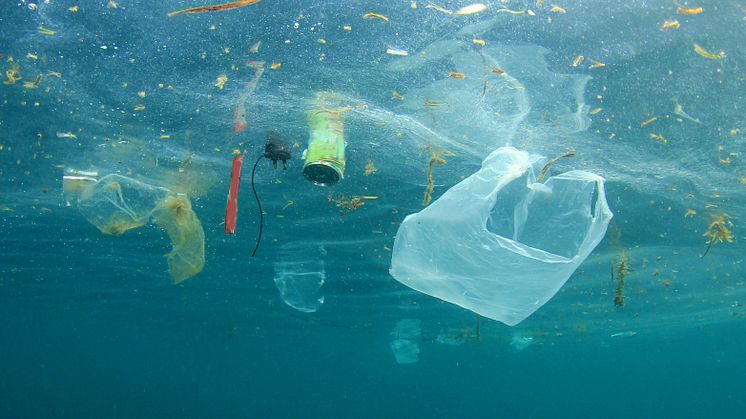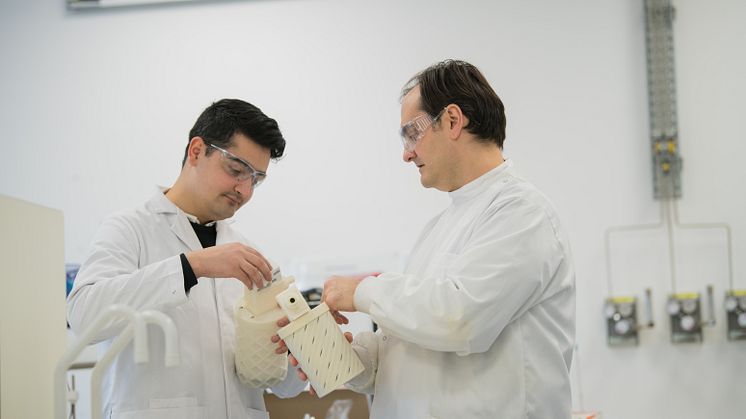North of Tyne back scientists in green revolution
The North of Tyne Combined Authority is backing the scientists of the future with plans to boost green technology and manufacturing in Newcastle, North Tyneside and Northumberland.

The North of Tyne Combined Authority is backing the scientists of the future with plans to boost green technology and manufacturing in Newcastle, North Tyneside and Northumberland.

Breakthrough forensic research at Northumbria University, Newcastle, has revealed for the first time that textile fibres can, under certain circumstances, be transferred between clothing in the absence of contact.

An international team of solar physicists, including academics from Northumbria University, Newcastle, has recently measured the global magnetic field of the outer most layer of the Sun’s atmosphere, the solar corona, for the first time.

A new study has revealed that the expanse of rock debris on glaciers, a factor that has been ignored in models of glacier melt and sea level rise, could be significant. The Northumbria University study is published in Nature Geoscience this week and is the first to manually verify the rock debris cover on every one of the Earth’s glaciers.

Lockdown could be bad for you back. Thanks to measures to tackle the coronavirus pandemic, many of us are now working from home. This means you might not be moving around as much, and your home desk setup (and the posture you adopt while working) might not be as good as it should be. These are all things that can lead to back pain.
A Professor in Northumbria University’s Department of Applied Sciences has won a top national award from The Royal Society of Chemistry.

A team of students selected by the Hub for Biotechnology in the Built Environment, a collaborative initiative between Northumbria and Newcastle universities, will be competing as finalists for their biotech-based design project in the Biodesign Challenge Summit 2020, June 15-19.

A new study has revealed that almost 13,000 tonnes of microfibres, equivalent to two rubbish trucks every day, are being released into European marine environments every year – but this could be reduced by as much as 30% if we made a small change to our laundry habits. The findings have been published by the scientific journal PLOS ONE for World Oceans Day on Monday 8 June.

As the country gears up to commemorate VE Day, academics at Northumbria University are delighted to have played a vital role in the development of a new smartphone app which helps UK military veterans find support services they need; whether that’s health services, jobs or housing.

Northumbria University's NUSTEM project has been recognised for its innovative work in improving diversity in engineering education.

Kingsley Oluchi Ugwuani, PhD researcher at Northumbria University, was consulted on the inclusion of Nigerian English words to the Oxford English Dictionary and writes for The Conversation about the impact the project has had.
An innovative breath collecting device developed by academics at Northumbria University, Newcastle, could revolutionise the way we diagnose diseases, such as the newly emerged strain of coronavirus, COVID-19.

A mechanical engineer from Northumbria University has won a prestigious award after developing an innovative process to turn sea water into clean, safe drinking water, using solar energy.

Dr Genavee Brown, Lecturer in Psychology at Northumbria University, explores how mobile phones are impacting the connection between people when they are together.
The clearest and most detailed images of the Sun have been captured by the largest telescope in the world.

The reprocessing of spent nuclear fuel could become safer and more efficient in future after Northumbria University researchers found a way to modify the structure of molecules to remove radioactive materials. The research is published in the influential Chemistry - A European Journal and is described by its editors as being of 'great significance'.

The ethical implications of machines being able to read human emotions will be explored in a ground-breaking new research project, involving Northumbria University criminologist Dr Diana Miranda.

A project which uses smart devices and big data to improve the lives of elderly people in parts of China has been named the winner of the prestigious £200,000 Newton China Prize 2019.

Northumbria University has become an academic partner of the Institution of Civil Engineers (ICE), the UK’s leading civil engineering professional body.

Researchers have produced the first physics-based quantifiable evidence that thinning ice shelves in Antarctica are causing more ice to flow from the land into the ocean. Their findings have been published in Geophysical Research Letters.
